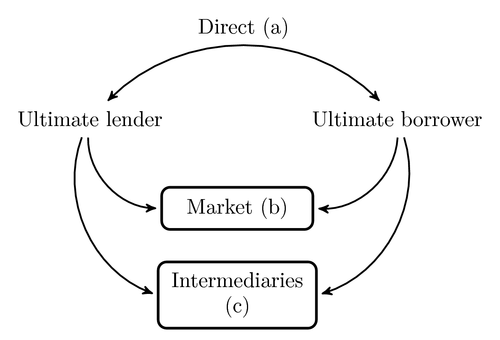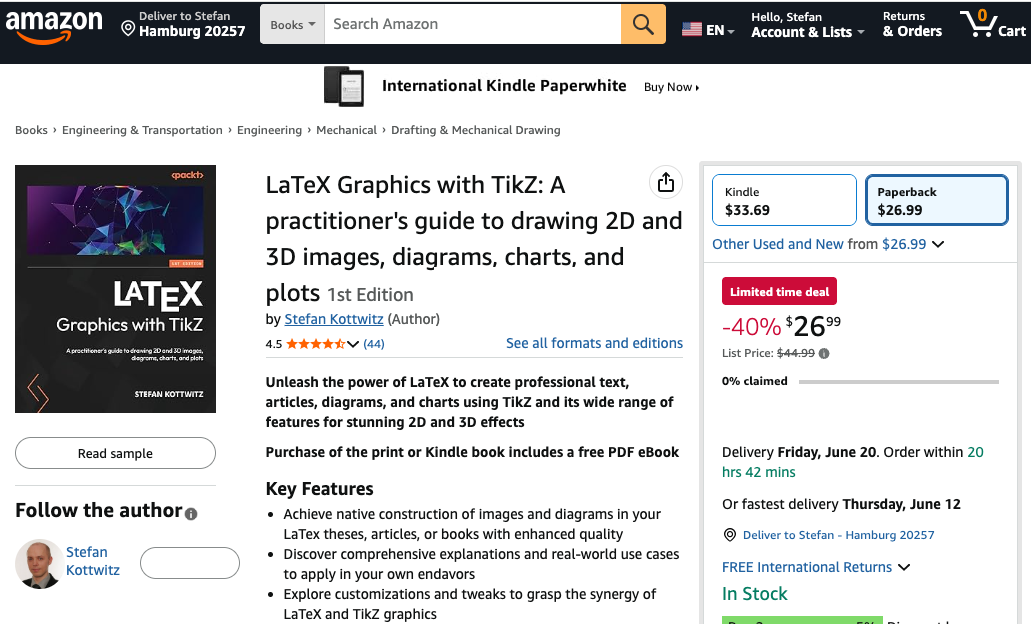An illustration inspired by Figure 1.1 in Howells, Peter og Bain, Keith (2007), Financial markets and institutions. 5th ed. Essex: Pearson Education.

Edit and compile if you like:
% Author: Rasmus Pank Roulund
% Inspired by figure in:
% Howells, Peter og Bain, Keith (2007). Financial markets and
% institutions. 5. udg. Essex: Pearson Education.
\documentclass{minimal}
\usepackage{tikz}
\usetikzlibrary{arrows,positioning}
\tikzset{
%Define standard arrow tip
>=stealth',
%Define style for boxes
punkt/.style={
rectangle,
rounded corners,
draw=black, very thick,
text width=6.5em,
minimum height=2em,
text centered},
% Define arrow style
pil/.style={
->,
thick,
shorten <=2pt,
shorten >=2pt,}
}
\begin{document}
\begin{tikzpicture}[node distance=1cm, auto,]
%nodes
\node[punkt] (market) {Market (b)};
\node[punkt, inner sep=5pt,below=0.5cm of market]
(formidler) {Intermediaries (c)};
% We make a dummy figure to make everything look nice.
\node[above=of market] (dummy) {};
\node[right=of dummy] (t) {Ultimate borrower}
edge[pil,bend left=45] (market.east) % edges are used to connect two nodes
edge[pil, bend left=45] (formidler.east); % .east since we want
% consistent style
\node[left=of dummy] (g) {Ultimate lender}
edge[pil, bend right=45] (market.west)
edge[pil, bend right=45] (formidler.west)
edge[pil,<->, bend left=45] node[auto] {Direct (a)} (t);
\end{tikzpicture}
\vspace{1em}
\emph{Inspired by figure 1.1 in ``Financial Markets and Institutions'' 5E
by Howells and Bain.}
\end{document}
%%% Local Variables:
%%% mode: latex
%%% TeX-master: t
%%% End:
Click to download: borrowers-and-lenders.tex • borrowers-and-lenders.pdf
Open in Overleaf: borrowers-and-lenders.tex


